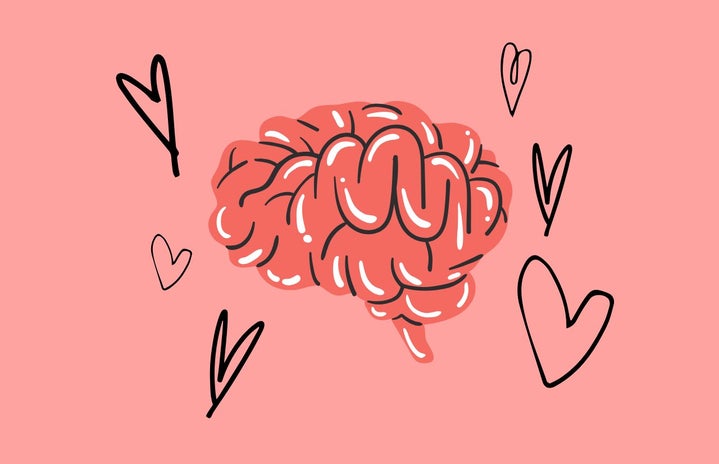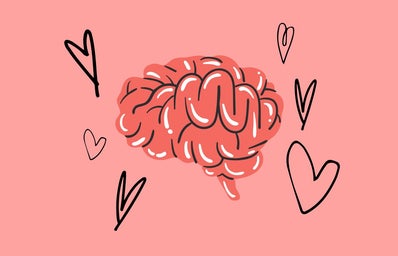If in high school, you told me that I’d have two manic episodes within a year and a half, I’d have laughed out loud. But then again, if you told me I would have four breakups, the loss of my friends, and a failed class, I’d have laughed too. Yet, all of these things happened before I was a senior in college. Go figure. I’d had a relatively normal average experience with mental health before college. That is, I had the good old, regular depression, and anxiety similar to what many of my peers suffered through in their teenage years.
I went through a few counselors and psychologists, but nothing really stuck. My school never followed through. The counselors seemed to punish me. The psychologists asked me to imagine my “happy place.” But how do you find your way back to somewhere you’ve never really been? I had a solid childhood. Amidst the parental conflict and inevitable failure, I was a bright kid. I made friends easily, I was artistic, and I was charismatic. Somehow, even with the years going by, I never really felt like I belonged. Something about me always seemed a little out of place, and true, undiluted happiness seemed to be beyond my reach in a future that was far away.

At the age of 20, I found my nirvana in a little pill called Zoloft, within the doors of a psychiatric rehabilitation center. After one of the biggest depressive episodes of my life, I sought help in my sophomore year of college. I was immediately placed on an antidepressant and sent into counseling groups that ultimately changed the course of my life. I left the center four days later feeling as if I’d just began the best part of a new journey.
Everything stood out in full color. Birds sang. Trees seemed green, in the middle of winter. I lost ten pounds. I dyed my hair blue, which faded to a deep green. I declared myself a Buddhist prophet, designed to take the world by storm and write a novel. I’d never been happier. Do you know what it feels like after 20 years, to be constantly joyful and overflowing? To wake up one day, and feel like everything that weighed you down was suddenly gone? It felt like euphoria and magic in the form of something medical. It felt like freedom. But while mania feels like liquid gold, it can also turn into your worst nightmare.
Mania usually occurs in conjunction with bipolar 1 or bipolar 2 disorder. However, it can also occur as a side effect of antidepressants and psychoactive medications. The symptoms of mania vary, but tend to include the following:
- Fast speech
- Impulsivity
- Disorganized and racing thought patterns
- Excessive energy
- Little need for sleep
- Euphoric mood
- Distraction
- Delusions of grandeur
- Inflated sense of self
- Psychosis (sometimes)
In my manic state, I began to get irritable. I was not only intensely happy, but intensely angry, at everything that had ever stood in the way of my happiness, and everything I’d ever resented in the past. I cut off all my friends, my relationship. I swore at my family, I paraded myself as the queen of the universe. I dug myself into a hole I couldn’t climb out of, as I spun out into the stars.

Fast forward to almost a year later. I’m in therapy twice a week, actually working for my happiness. I’m not medicated. And I finally feel like my future is back in my hands. I’ve made new friends. I’ve moved into a new apartment. I’m in a major I enjoy, freshly single. The world seems to be my oyster. I thought the worst of it was all over, and I was back at the beginning again. Mania seemed unnecessary, something I’d never touch again. My sense of peace, however, would only last a few more months.
In April of 2020, I tried lithium. It crept up slowly. The colors of spring went from slightly dull to fully saturated. I seemed to be finding answers for life’s questions in the pages of books and within the leaves. “Mania” they whispered. I ignored it. Happiness is something you should never refuse, right?
Remember how I said mania could be your worst nightmare? Well, this time it was beyond anything I could have pictured in a horror movie. I lost my mind completely, in a full psychosis. The magic turned into a mystery that turned into full-blown malevolence. I didn’t sleep for days. I scared my entire family. I physically hurt people. I screamed at the police, and was handcuffed on the ground. And once again, I was whisked away in an ambulance for a week of reform.
I don’t tell you all of this to scare you or scare you away from taking medication. I tell you this because we don’t talk enough about mental illnesses that are uglier than crying and panic attacks. We don’t talk about psychosis, or mania, or what might happen to you when you start medications that your body isn’t used to. Mental illness is more than depression and anxiety, and feel good fillers for self-care. Mental health is raw and real and it happened to me, and still happens to me all the time. Maybe not a manic episode, but the shame of what my mental health has caused has forced me to become more than thick-skinned.

Bipolar disorder and borderline personality disorder are only two diagnoses that have high rates of suicide. BPD is known to affect at least 80% of patients with suicidal thoughts and attempts, and a 10% completion rate exists within the community. Bipolar disorder is not much better, with an attempt rate between 25% and 60% and a completion rate between 4% and 19%.
I’ve definitely experienced the highs and lows of mental health. Maybe sharing how bad it can be and how awful it can become, will be another step towards healing. I hold myself accountable every day for the work I have to do in order to lead a normal life while battling illnesses that many cannot see on the surface. It makes me more empathetic and compassionate towards others, who may have done things they regret or want to do things that steer them away from the future they should be able to have-just like anyone else. I’m going on 4-5 months since my last manic episode, and I’m still on the way back to myself. And that’s okay. I have seen some of the worst of what mental illness has to offer, and I’ve come out on the other side. I’ve written so much to help other people because I truly believe in what treatment has to offer, and I want to be a part of it for others.
Mania is the best, and it’s also the worst. It’s something that should never be challenged. The magic of it will probably always intrigue me. Some of the delusions it gave me were good ones. I had delusions about being protected by guardian angels and my family, I had visions of who I’d be and all the great things I could become. I dreamt of love in all its forms. I saw coincidences in the smallest aspects of the day. I saw connections between me and the world that I always felt far away from. I had faith in something and faith in myself, a concept that used to seem incredibly foreign to me. There is always a silver lining, even in the worst moments. Maybe I’m not a Buddhist prophet, or a chosen one. But my suffering led me to the enlightenment that I will never, ever be alone in the universe.




